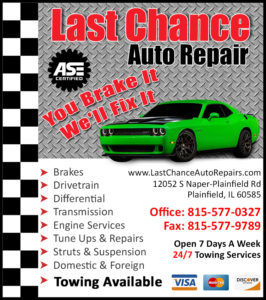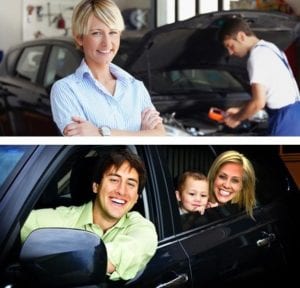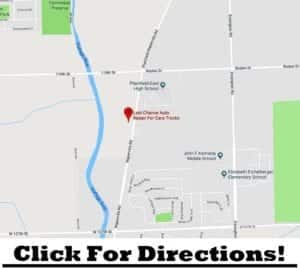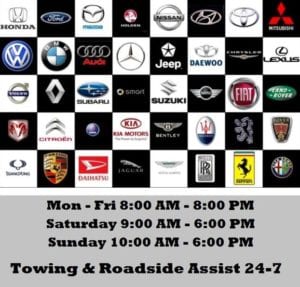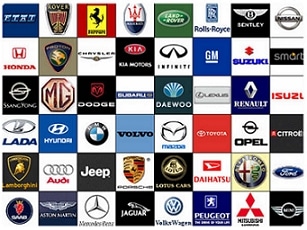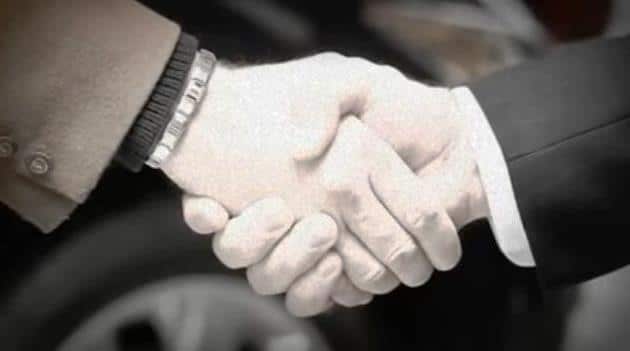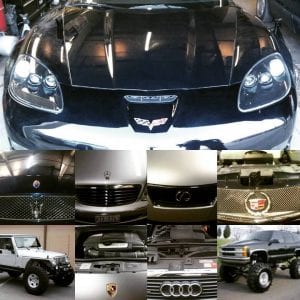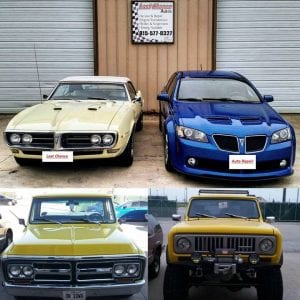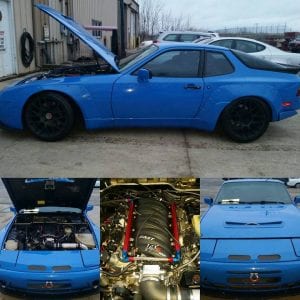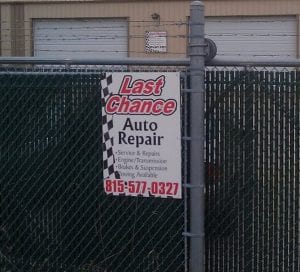Auto Repair Shop In Plainfield, IL
Auto Repair Shop in Plainfield, IL, You Can Count On
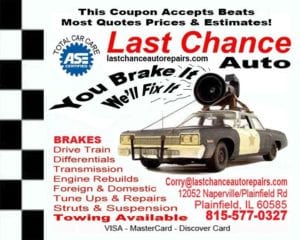
Need an auto repair shop in Plainfield, IL? Since 1978 Last Chance Auto Repair in Plainfield, has been doing what we do best hence offering our auto repair services to Plainfield, Naperville, Bolingbrook, Romeoville, Chicagoland at its finest.
We are the local #1 choice, dealership alternative, auto repair shop in Plainfield, near me, for a reason. Count on our teams over 200+ years of combined experience under our belts and our always over the top superior customer service. We are a family-owned & operated kind of auto repair shop that truly cares about you (our customer) and our reputation. Servicing all makes & models, domestic & foreign vehicles, A-Z.
Quality Auto Repair Shop In Plainfield, IL
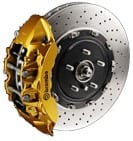
Need a brake repair shop in Plainfield? Is it time to change your brakes near me? Does your brake warning light come on when you’re driving? Is your brake fluid low for some reason? Do you need your brake fluid flushed? Are you hearing a grinding or a squealing sound when you apply your brake pedal? Do you feel a pulsation, vibration, or some sponginess in your brake pedal when it is pressed? Does your vehicle steer or pull to one side when braking?
Regardless of your brake problem or service need, our auto repair shop in Plainfield aka brake shop, has you covered? Offering brakes for car, van, SUV, truck, classic, all makes & models, domestic & foreign, A-Z. You brake it, we’ll fix it, period. Call now to schedule a FREE brake inspection.
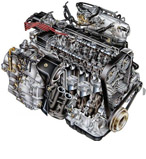
Searching for an engine repair shop near me? We are the local engine expert in Plainfield that you’ve heard so much about. Your engine is the heart of your vehicle and just like human hearts they need to be taken care of to make sure they last. An engine that is running perfectly makes a vehicle more pleasurable to drive.
Routine maintenance needs to be done on any engine. Even new vehicles have spark plugs, ignition cables, air filters, and so on that on occasion need to be serviced. A tune-up is key to a healthy vehicle and to making your investment last. Wondering how your engine is feeling? Call Last Chance Auto Repair in Plainfield now, to schedule a FREE engine computer scan to see how healthy your engine is.
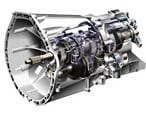
Need a transmission repair shop near me? Having transmission problems near or in Plainfield? We offer transmission maintenance, repair & rebuilding services for all makes & models A-Z. Before starting most repairs our team performs a diagnostic scan on your transmission & vehicle computer control systems to make sure of what is needed typically FREE of charge.
If your trans does require a repair, Plainfield’s auto repair shop team Last Chance Auto Repair, will repair or if need be rebuild your vehicle’s transmission correctly with our BBB A+ quality and a more than fair competitive price included. Maybe your trans is just due for maintenance? From basic repair & service to major rebuilds, our mechanics know transmissions like the backs of our hands.
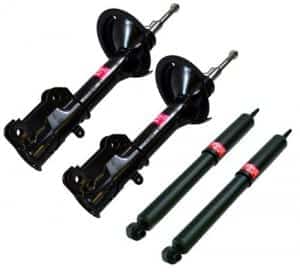
Need a suspension repair shop near me? Having suspension problems? We are the local suspension pro, the go-to-shop, your #1 choice auto repair shop in Plainfield that you can count on. Do you know what your suspension is all about?
Your suspension maintains your vehicle’s ride height, reduces the effect of shock forces, helps maintain wheel alignment, supports the weight of your vehicle, keeps your tires on the road all while helping control your direction of travel. Your suspension does all this with shocks, struts & springs, an assortment of bushings, several different types of linkages, that all connect your vehicle to the wheels. We’ve got all your suspension service needs covered A-Z, call the local suspension expert aka our auto repair shop in Plainfield at 815-577-0327 now.
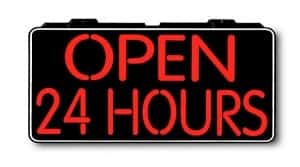
Are you in need of towing in Plainfield, IL, towing near me, or towing near you? Need a roadside assistance service in Plainfield, Naperville, Bolingbrook, Romeoville or any surrounding Chicagoland Illinois?
We offer quality, low-cost, fast response roadside assistance & towing in Plainfield plus throughout the Chicago Metropolitan Area. Tow your vehicle to our auto repair shop in Plainfield and get a discount off of our already low towing rates and pay for it later as when you are picking up your vehicle.
We specialize in light, medium, heavy-duty towing & roadside assistance. Services include: flatbed tow truck & wrecker towing, accident & collision recovery, jump start, auto lockout, flat-tire change, gas delivery, mobile battery replacement, etc. We’ve got all your roadside assistance and towing service in Plainfield, Naperville, Bolingbrook, Romeoville, throughout Chicagoland plus beyond needs covered.
Auto Repair Shop In Plainfield, IL, Servicing All Makes & Models
Having car problems? Last Chance Auto Repair in Plainfield is the best car repair shop in Plainfield Illinois, hands down. Trust our highly trained ASE certified mechanics that specialize in both domestic & foreign vehicle services. Our diagnostic skills are second to none. We’ve been diagnosing emissions, engine, transmission, electrical systems, and a whole lot more for decades. You break it, we’ll fix it A-Z. Wondering what that means?
Our auto mechanic shop in Plainfield works on just about everything. From old to new and everything in between, our top-notch auto mechanics and superior customer service will show you what the best is all about. Convertibles, hatchbacks, sedans, crossovers, SUVs, pick-up trucks (light & medium-duty), work trucks to classic, vintage, hot rod, performance plus hybrids & electric, vehicle service you can trust A-Z.
Domestic vehicles we service at our auto repair shop include:
Buick, Cadillac, Chevy, Chrysler, Corvette, Dodge, Ford, GM, GMC, Hummer, Jeep, Lincoln, Mercury, Oldsmobile, Plymouth, Pontiac, Saturn, etc. Want to schedule a domestic vehicle repair or maintenance service at our auto repair shop in Plainfield, IL?
Foreign vehicles that our Plainfield vehicle service center services include:
Acura, Audi, BMW, Fiat, Honda, Hyundai, Infiniti, Isuzu, Jaguar, KIA, Land Rover, Lexus, Nissan, Mazda, Mercedes Benz, Mini Cooper, Mitsubishi, Nissan, Porsche, Saab, Scion, Smart, Subaru, Suzuki, Toyota, Volvo, Volkswagen, VW, etc. Call our auto repair shop in Plainfield now to make appointment!
Experienced Plainfield Auto Repair Professionals
Over at Last Chance Auto Repair in Plainfield our team specializes in domestic & foreign vehicle repair, maintenance, diagnostic & rebuilding services A-Z. We are the local brake, electrical, engine, transmission, suspension, timing belt, emissions, powertrain & drivetrain systems expert to say the least. Need an auto repair in Plainfield? How can we help you? Call the best auto repair shop in, near, close to, around Plainfield aka at 815-577-0327 now.
Searching for a professional auto repair shop in Plainfield you can count on? You are in luck, we service all makes & models with our nearly famous low-cost & BBB A+ quality guarantee included. Unlike most automotive repair shops near me we don’t have any big, hungry, corporate mouths that need to be fed, the reason we can offer a guaranteed low-price. Best prices in town, highly trained ASE certified trained auto mechanics, superior customer service mixed to perfection and you get the one and only, Last Chance Auto Repair in Plainfield, IL.
Best Auto Repair Shop In Plainfield, IL
[RICH_REVIEWS_SHOW category=”Auto Repair In Plainfield” num=”3″]
[RICH_REVIEWS_SNIPPET category=”all”]
Years Of Auto Service In Plainfield History You Can Trust
Our auto repair shop in Plainfield goes above and beyond by offering: FREE local shuttle services, convenient, cost effective, pay for it when you pick it up, towing & roadside assistance services 24-7, free computer scans plus sparkly personalities that will turn any frown upside down . Our professional and quality automotive repair services with family prices and love included isn’t a smoke show, it’s a deal sealer.
In need of a top-notch auto repair shop in Plainfield? We’re here for you!
More About Last Chance Auto Repair In Plainfield, IL
If you love your vehicle, you’ll love how much we love doing what we do best. Want to support a local business hence an auto repair shop in Plainfield, IL? Our family owned automotive repair shop Last Chance Auto Repair in Plainfield, has your back. Learn more about us on YouTube!
Local Auto Repair Shop In Plainfield, IL, Near Me
Need an auto repair shop in Plainfield Illinois, near me, that you can count on, trust plus afford? Did you just move to Plainfield, Naperville, Bolingbrook, Romeoville, wondering where the closest, best, most cost effective auto repair shop near you is located and who to call? If you are reading this you probably found it when you typed in best auto repair shop in Plainfield, IL, near me on the internet. The choice couldn’t be clearer.
In need of auto repair in Plainfield? Don’t worry, our Plainfield auto repair shop has you covered regardless of your service needs, but now you’re going to have to find us. We are located across the street from Plainfield East High School, down the block from the Bolingbrook Golf Club and basically kitty-corner from the Naperville Polo Club/Soccer Fields. You can also say a hop, skip, jump & highway away from Illinois route 59, I-55 & I-355.
We have people that come to our mechanic shop in Plainfield, IL, from all over Chicagoland plus sometimes even from out of state for our knowledge, expertise and low cost vehicle repair & service solutions. We hear it’s hard to find an automotive repair shop you can trust plus afford, all the time. In any case, we have you and all your automotive service needs covered A-Z.
[trustindex no-registration=google]
Last Chance Auto Repair For Cars Trucks In Plainfield, IL
Count on our unyielding commitment to automotive service excellence & complete satisfaction pertaining to all your car, van, suv, auto, truck, classic, vehicle service needs. Our skills plus many years of experience lead to quality automotive repair & service that you can trust & afford. Questions? Schedule an appointment? Call 815-577-0327 for the best auto repair shop near me now!
Resources: Plainfield, IL | News




